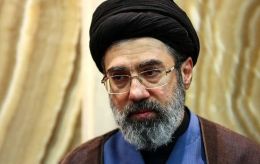Under Iran's nose. Why Trump pacifying Middle East and how it will affect Russia-Ukraine war
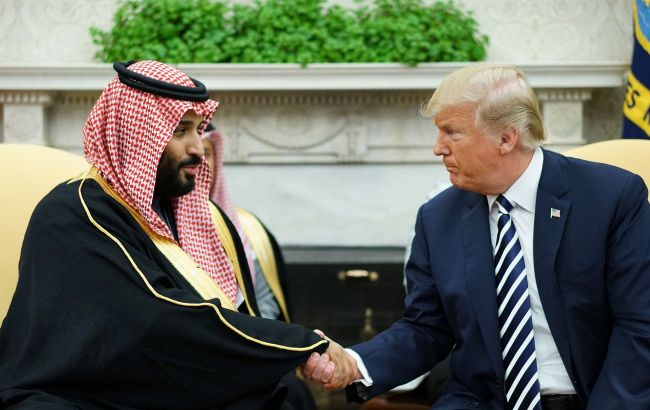 US President Donald Trump and Saudi Crown Prince Mohammed bin Salman (photo: Getty Images)
US President Donald Trump and Saudi Crown Prince Mohammed bin Salman (photo: Getty Images)
In addition to Ukraine, Donald Trump has taken decisive action in the Middle East. How he plans to solve the problems of Gaza, and Iran and how he can put pressure on Russia through the Middle East read in the RBC-Ukraine article.
Contents
- Saudi Arabia - pressure on Iran and Russia
- Israel-Hamas: Cutting Gordian Knot
- United States and (non)nuclear Iran
After the Munich Security Conference, Ukrainian President Volodymyr Zelenskyy left for the United Arab Emirates. At the same time, a large Ukrainian delegation is working in Saudi Arabia, where Zelenskyy is also due to visit soon.
In Saudi Arabia, the US and Russia are scheduled to hold talks on ending the war with the participation of US Secretary of State Marco Rubio and Russian Foreign Minister Sergey Lavrov. So far, Ukraine has not been involved. Instead, Ukraine and the United States will hold talks in Kyiv without Russia.
The choice of Saudi Arabia as a platform for talks with Russia is not accidental. Moreover, it is not only related to the Russian context. US President Donald Trump has undertaken to end not only Russia's war against Ukraine. He is no less active in pacifying the Middle East, where Saudi Arabia plays an important role.
After October 7, 2023, this region became the second hot spot in the world after Ukraine. The Hamas terrorist attack on Israel, followed by the just retaliation in the form of an Israeli military operation in the Gaza Strip, and the involvement of Hezbollah, other Iranian allies, and Iran itself in the conflict created a risk of regional conflict that diplomatic efforts have so far avoided.
Saudi Arabia - pressure on Iran and Russia
US President Donald Trump has repeatedly stated that one of the means of putting pressure on Russia and Iran will be low oil prices - at the level of 45-50 dollars per barrel. This cannot be achieved without Saudi Arabia, one of the world's largest oil suppliers. For prices to fall, the Gulf countries, including Saudi Arabia, must increase oil production to increase its supply and provoke a price decline.
It is no coincidence that Trump's special envoy for the Middle East, Steven Witkoff, has now joined the talks between the US and Russia. It was he who flew to Moscow on February 11 to return American hostage Marc Fogel. At the same time, according to Fox News, Witkoff had a conversation with Russia's Putin that could have lasted 3.5 hours. The day before, Trump's envoy discussed ending the war with the leaders of Saudi Arabia and Qatar.
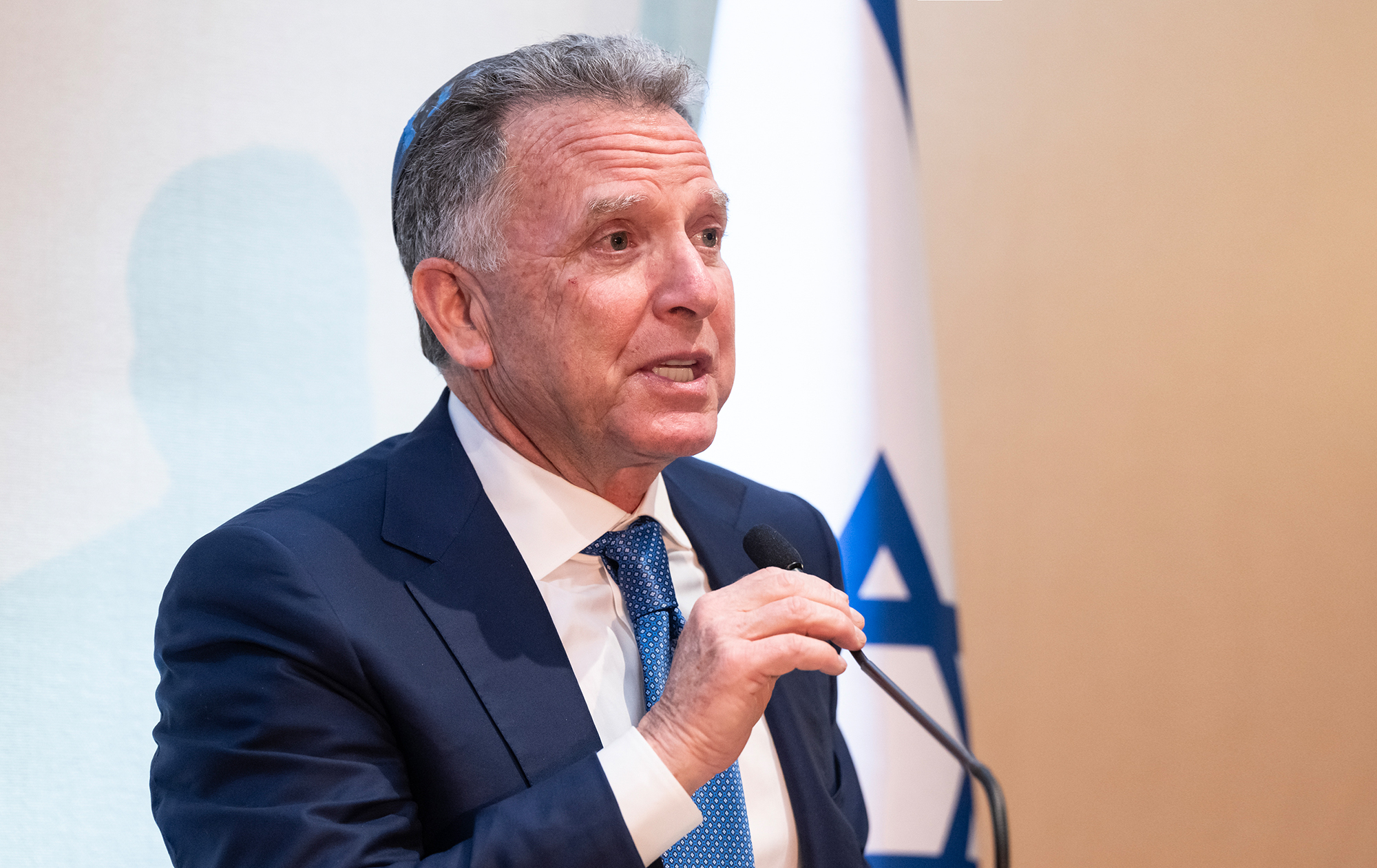 Steven Witkoff (Photo: Getty Images)
Steven Witkoff (Photo: Getty Images)
The Gulf states, especially Saudi Arabia, also have the resources to rebuild the Gaza Strip. In addition, Trump is interested in Arab investment in the United States itself, either directly or indirectly through the purchase of American weapons.
The kingdom is also interested in restoring full cooperation with the United States, as relations between the two countries were far from Washington's priority under Biden.
“Saudi Arabia entered the Trump administration with massive expectations, hoping that he'd sell it weapons and technologies the US had previously denied and, most of all, back it in developing a nuclear program and providing certain defense guarantees. In exchange, Riyadh is willing to pay significant costs,” Ilan Zalayat, a Research fellow at the Institute for National Security Studies and Moshe Dayan Center at Tel Aviv University, told RBC-Ukraine.
During his presidency, Biden imposed restrictions on the sale of precision munitions and other weapons to force Saudi Arabia to end its military campaign against the Houthis in Yemen. He also had comments on human rights and generally poor personal relations with the de facto leader of the country, Crown Prince Mohammed bin Salman. Therefore, for a long time, Riyadh did not agree to increase production, although Biden's team asked for it.
In exchange for weapons and technology from Trump, Saudi Arabia has already announced that it will invest $600 billion in the United States over the next four years. However, there are limitations. The country is implementing an ambitious modernization program called Vision 2030, which aims to reform the country's economy to reduce its dependence on oil. And it was this program that received most of the free funds.
The Saudi leadership indirectly confirmed its readiness to help reduce prices, stating that the position of the kingdom and OPEC (Organization of the Petroleum Exporting Countries) was aimed at ensuring long-term market stability to guarantee sufficient supply for growing demand, particularly from the United States and artificial intelligence. This was reported by Saudi Arabia's Minister of Economy, Faisal Alibrahim, at the World Economic Forum in Davos on January 24.
However, how the agreements between the United States and Saudi Arabia will develop depends on the events around Israel and Iran.
Israel-Hamas: Cutting Gordian Knot
Under Biden, American diplomacy paid as much attention to Israel and Hamas as it did to Ukraine. And in terms of the number of visits by US Secretary of State Antony Blinken to the region, it was even more. However, the effectiveness of such trips was questionable. Negotiations on the cessation of hostilities and the return of Israeli hostages went on for months without much success.
Everything changed with the arrival of Donald Trump. Even before his inauguration, the new US president's special envoy, Steven Witkoff, did more in one trip than the entire Biden team did in a year. Even Israeli officials recognized this. With the mediation of the aforementioned Steven Witkoff, Israel and Hamas were forced to agree to a truce that did not fully satisfy either side.
Despite the constant risk of the agreement's failure, the question of rebuilding the Gaza Strip now arises. First and foremost, it is necessary to overcome the humanitarian catastrophe caused by Hamas's aggression against Israel and subsequent hostilities. In addition, it is the social base of millions of disadvantaged Palestinians that allows terrorists to renew their forces time and time again, using the narrative that Israel, not Hamas, is to blame for all the troubles.
To solve this problem, Trump has proposed a radical step - to relocate about two million Palestinians from the Gaza Strip. Instead of ruins, modern residential, shopping, and entertainment complexes should be built in Gaza. He put forward this idea during Israeli Prime Minister Benjamin Netanyahu's visit to the United States.
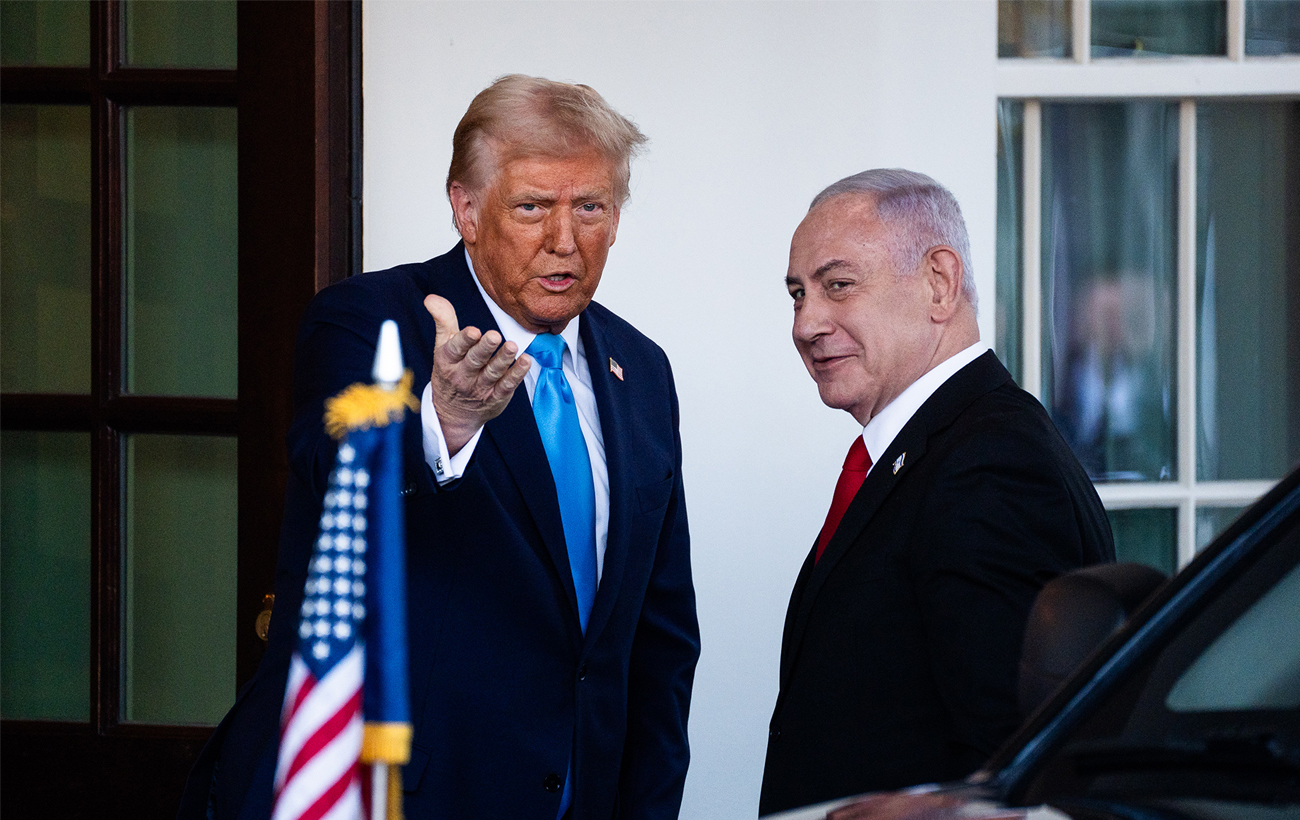 Donald Trump and Benjamin Netanyahu (photo: Getty Images)
Donald Trump and Benjamin Netanyahu (photo: Getty Images)
It is far from certain that this plan will work. However, despite the incredible idea of resettlement, Trump is not abandoning it, albeit with adjustments. In particular, he discussed temporary resettlement from the Gaza Strip with King Abdullah II of Jordan during the latter's visit to the United States on February 11.
The region has different attitudes toward Trump's idea. 69% of Israelis support the proposal to expel Gaza residents to other countries. At the same time, a recent poll by Israel's Channel 12 TV showed that most citizens consider this plan unrealistic.
In Arab countries, the attitude is rather negative. Hamas, in many countries, is perceived as a hostile force, part of the Muslim Brotherhood network, which often works to undermine traditional government institutions. However, there is a historical sentiment toward the Palestinians in a broad sense.
“I don't see how the idea of accepting masses of Palestinians would be accepted by any country in the region. Apart from the heavy economic burden, Arab states have fostered for eight decades the narrative that they stand with the Palestinians in their struggle for Palestine. They cannot suddenly agree that Palestinians should leave for other places, even in exchange for financial compensation.” said Ilan Zalayat.
Egypt, a country that borders the Gaza Strip and is considered by Trump to be one of the resettlement places, sharply rejected the idea. At the same time, Egypt intends to put forward a plan with a comprehensive vision for the reconstruction of Gaza to guarantee the Palestinian people's continued presence on their land following their legitimate rights. This is a vision that is close to the heart of Jordan, another of Israel's neighbors, as well as most others in the region.
“The Jordanian king wrote that reconstructing Gaza without displacing Palestinians and addressing the dire humanitarian situation must be a priority for all, after his meeting with Trump,” the Jordanian king wrote after he met with Trump. He said that the two leaders had a constructive conversation but that his country remains concerned about Trump's proposal. One way or another, the idea of resettlement will develop. Moreover, the United States has enough leverage over Egypt and Jordan.
“First, both countries are quite dependent on the United States in the security sphere. They are equipped with American weapons, they receive aid for these weapons. And this is a powerful factor. Secondly, especially in Egypt, the economic situation is far from the best. They depend on the capital market for loans and cooperation,” Serhii Danylov, deputy director of the Center for Middle East Studies in Kyiv, told RBC-Ukraine.
Middle East leaders plan to decide how to respond to Trump's actions at the Arab League summit on February 27.
United States and (non)nuclear Iran
Along with the activity around Israel and the Gaza Strip, Trump has announced his desire to conclude a new nuclear deal with Iran. These two areas are quite closely linked, not to mention Iran's support for Russia and its longstanding rivalry with Saudi Arabia.
When Israel launched a military operation against Hamas, Iran, in solidarity, also intensified its attacks against the Jewish state. At first, through controlled organizations in Lebanon and Yemen. After Israel responded to the attacks, Iran directly launched missile and drone strikes against it. This exchange of strikes brought the entire Middle East to the brink of a major regional war several times, but the degree of tension was reduced.
One of the consequences of these actions was the weakening of a significant part of Iran's allies in the region. Israel seriously reduced the combat potential of Hamas in the Gaza Strip, and Hezbollah in Lebanon, and the Assad regime in Syria fell after years of decline under the onslaught of rebels. The Iranian leadership viewed the network of allies, on the one hand, as an instrument of influence and, on the other hand, as a means of deterring possible aggression against Iran itself (no matter how paranoid this scenario may look).
As a result, the idea of creating nuclear weapons is gaining popularity among Iranian elites. According to the sources of The Telegraph, the command of the Islamic Revolutionary Guard Corps, a paramilitary structure responsible for protecting the ruling regime, called on Iran's Supreme Leader Ali Khamenei to cancel the fatwa prohibiting the development of nuclear weapons. As RBC-Ukraine has written in detail, Iran is currently a threshold country, meaning that it has the technology and resources to create nuclear weapons in the foreseeable future but has not yet begun this process.
Currently, a secret group of Iranian scientists is working to find methods to quickly convert nuclear fuel stockpiles into weapons, The New York Times reports, citing sources familiar with the intelligence. According to the agency's sources, Iran has up to 60% enriched uranium for four to five bombs. But it needs to be further enriched to 90%.
Trump wrote on Truth Social on February 5 that he wanted Iran to be a great and successful country, but one that could not have nuclear weapons. He stated that reports suggesting the United States, in collaboration with Israel, was going to blow Iran to smithereens were very exaggerated. He also expressed a preference for a verifiable nuclear peace deal that would allow Iran to develop and prosper in peace.
This is not the first attempt by the international community to take control of Iran's nuclear program. In 2015, the five permanent members of the UN Security Council - the United States, China, Russia, France, the United Kingdom, and Germany - signed an agreement with Iran called the Joint Comprehensive Plan of Action. It provided for the admission of observers to Iran's nuclear facilities to ensure that the country did not develop nuclear weapons. In exchange, some sanctions were lifted from Iran. However, in 2018, Trump withdrew the United States from the nuclear deal and renewed pressure on Iran.
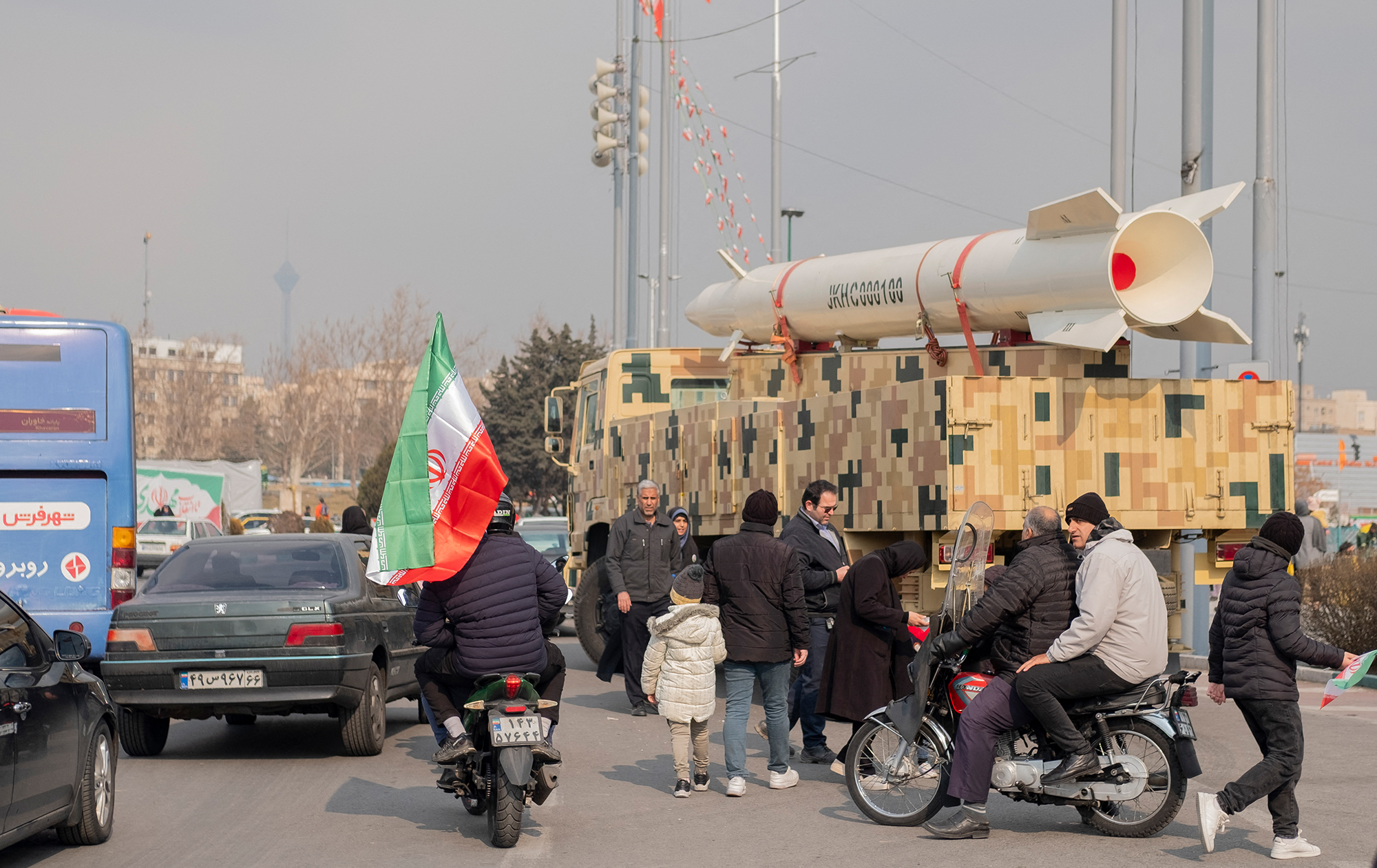 An Iranian missile in a crowd in the middle of Tehran (photo: Getty Images)
An Iranian missile in a crowd in the middle of Tehran (photo: Getty Images)
Reacting to Trump's statement, Iran's Supreme Leader Ayatollah Ali Khamenei on February 7 publicly ruled out the possibility of new negotiations with the United States precisely because of the past negative experience. Khamenei said there should be no negotiations with such a government (Trump's) because it was neither wise, prudent, nor worthy.
This is a public statement, but on a less formal level, things are more complicated. “In the case of Iran, it is likely that behind the scenes, different things are being said than in public statements. Iran fears Trump's recklessness and would prepare to reach a sort of agreement. Yet, it's unclear if there's any formula that would be accepted by both sides in the current stage of Iran's nuclear deal program (which is much more advanced than when the JCPOA was signed in 2015),” Ilan Zalayat noted.
Simultaneously with the announcement of the talks, Trump signed a memorandum on renewed pressure on Iran, which ordered the US Treasury Department to exert maximum economic pressure on Iran through sanctions and coercive mechanisms against individuals and entities.
After that, Iranian Foreign Minister Abbas Araqchi said that negotiations, if possible, would not be possible under the maximum pressure policy and would be subject to lifting some sanctions. At the same time, Trump has created conditions where time is playing against Iran.
“The main factor of pressure has already been used. Problems with Iran's oil exports have begun. They are seriously affecting the ability to supply oil to the Asia-Pacific region. Given the difficult situation in the economy and the budget, it would be a disaster to be left without oil revenues,” said Serhii Danylov.
According to him, another factor that can be used to put pressure on Tehran is the threat of strikes on Iran's nuclear facilities. Either by the United States or other states. Back in December, The Times of Israel reported, citing military officials, that Israel was developing such plans just in case. Moreover, there is already a similar experience. In 1981, the Israeli Air Force destroyed the Osirak nuclear reactor in Iraq.
Members of the Trump team have so far refrained from making direct statements supporting such intentions, leaving strategic uncertainty. US Secretary of State Marco Rubio said at a press conference in Tel Aviv on February 17 that Israel and America stood side by side in confronting the threat from Iran. He stated that they had agreed the Ayatollah should not have nuclear weapons and that Iran's aggression in the region must stop.
But, if the strike scenario is implemented, the region will face a major war. And then Trump may not have time for Ukraine. So Russia's war against Ukraine and the increasingly tangled tangle of contradictions in the Middle East are becoming more and more connected. It is not always clear how events in the region can be used by Ukraine or Russia, but there will be more and more opportunities for this.
Sources: Fox News, Reuters, Bloomberg, The Telegraph, Times of Israel, The New York Times, Ilan Zalayat, research fellow at the Institute for National Security Studies and the Moshe Dayan Center at Tel Aviv University, and Serhii Danylov, deputy director of the Center for Middle East Studies.



